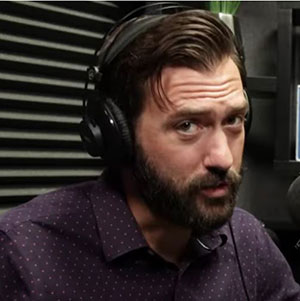 Andy
Andy
Alright, so you've just been involved in a self-defense shooting, and you're wondering, what do I do with my firearm? Maybe the police are on the way, maybe there are witnesses around. Maybe it's total chaos, or maybe it's dead silent. What do you do in that moment? That's what we're going to answer today. This attorney Andy Marcantel and attorney Marc J. Victor, we are the attorneys for freedom. How you doing today, Marc?
Marc
Great man. This is always a tough one, right? Because people want general advice that applies to every situation. There really isn't any such thing,
Andy
Right? That's right. That's right. It depends on whether it's a good shoot or a bad shoot first.
Marc
It kind of makes a difference, doesn't it? Yeah. So we don't know that. But one thing I can say is you don't want to be shot by the cops when they show up. So you have to imagine after a shooting, the police are on their way, they don't know what the situation is, they're going to go home. So first order of business is make sure you are not presenting a risk to the police. So definitely the last place you want that firearm is in your hand.
Andy
That's right.
Marc
Probably the second to last place you want that firearm is within the immediate grabbing area of a bad guy who may or may not be dead right now. So it depends, right? Assuming it's a good shoot and assuming that you are not a threat, and assuming the gun is in a spot that it's safe and all this and that. I would leave the evidence where it is and don't change anything. Now, if you've had a shoot, bad guy left, now the gun's in your hand, cops are on the way. Put the gun, make it safe. I would take the rounds out, I'd put the firearm down, I'd be outside with hands up, making it very
Andy
Clear. Yes, as I always tell my clients, you want to look as little threat as possible when the cops show up, when they see you, they don't want to think for a second. This person could be dangerous.
Marc
And now remember, we're not big fans of talking to the police, right? At least not right there at the scene before you have a chance to talk to an attorney. Now keep in mind, you may be the one who has to call 9 1 1. Question arises sometimes, should I call 9 1 1? What should I say? Look, it's best if you can get somebody else to call 9 1 1 so you're not making any statements. So if you can get a friend to call and really the only thing you want to convey is there has been a shooting. Here's the address, there's a person down. If that's the situation, send medical help. Goodbye, click. So if you've got to make that call, that's really all you should say. You should know in advance that that 9 1 1 operator is going to ask you a whole bunch of questions. To be clear, we do not recommend that you answer those questions because general statements can be wrong in some cases and could cut off legal theories.
Andy
So if you're at your home, I mean, you just want to make sure that the gun is not in police view in your hands or grab area when they show up and you want to make sure that it's safe. So this is kind of factually dependent. I've had clients in the past go and put the gun in their safe, lock the safe, and then go outside and present themselves to the officer. Say if the shooting is at your house, and then immediately inform the officers where the gun is so that they can go and retrieve it, that's fine, generally speaking. But it's tough because everything's factually dependent.
Marc
They may not even know who the shooter was. And so look, keep your mind if you're questioning whether you should speak or not, resolve it in favor of keeping your mouth shut. I don't know how many times I got to say the same thing over and over again. Don't talk to the cops,
Andy
You, Hey, you
Marc
Don't talk to the police.
Andy
Alright, this has been attorney Andy Marcantel attorney Mark j Victor, were the attorneys for freedom. Until next time, peace. Peace.
YouTube Video Link: https://www.youtube.com/watch?v=fX_HVjcG0so
Credit: Attorneys on Retainer
